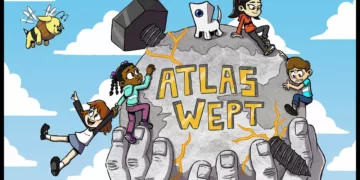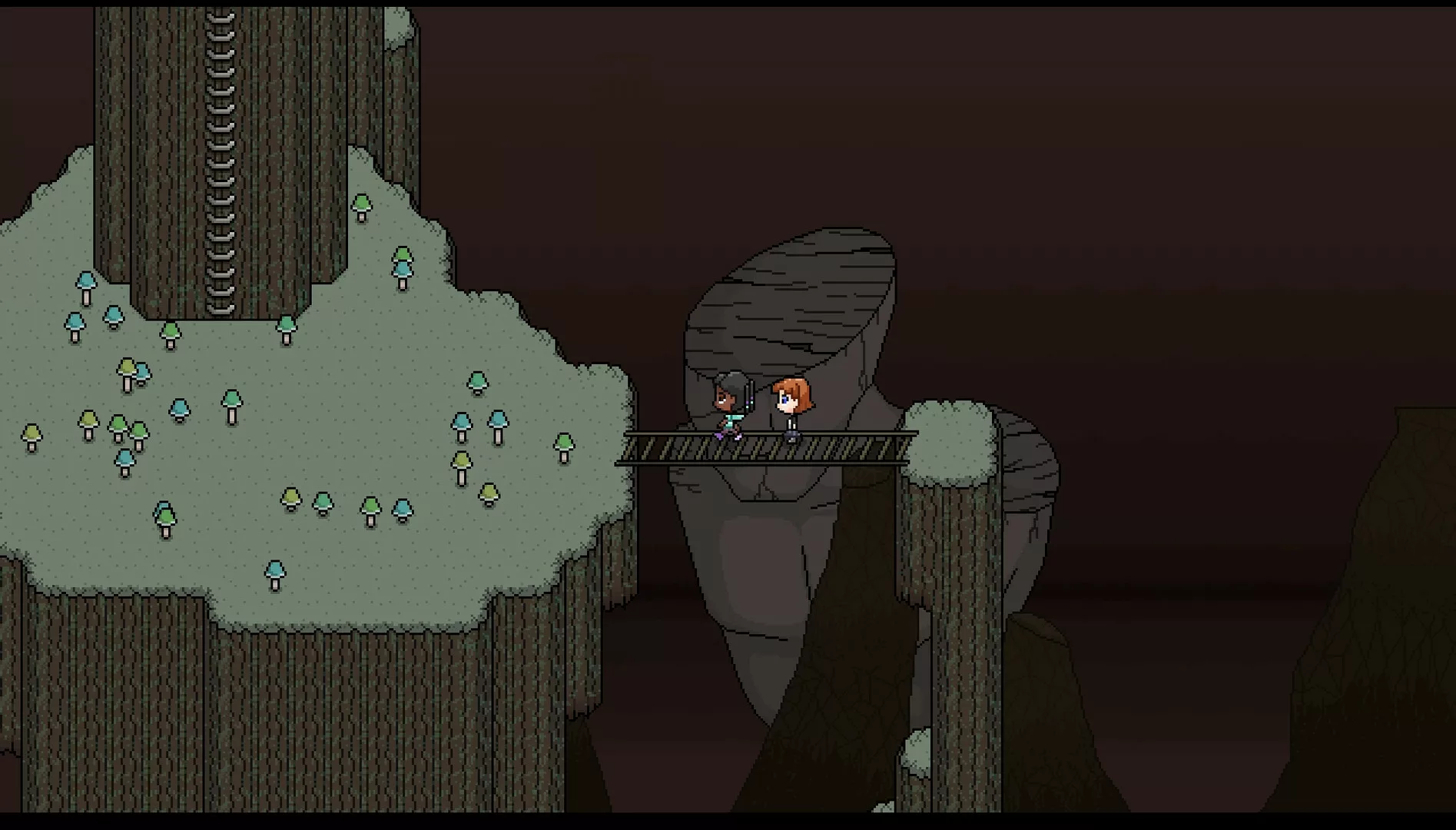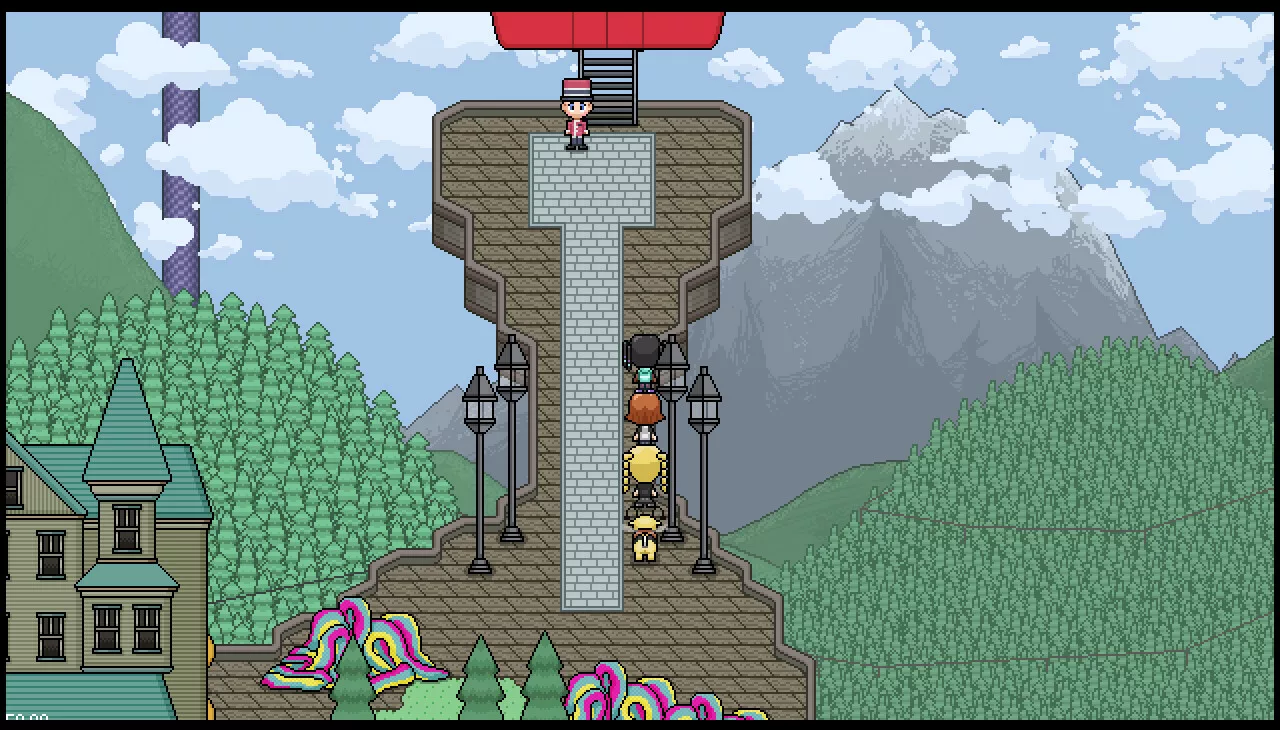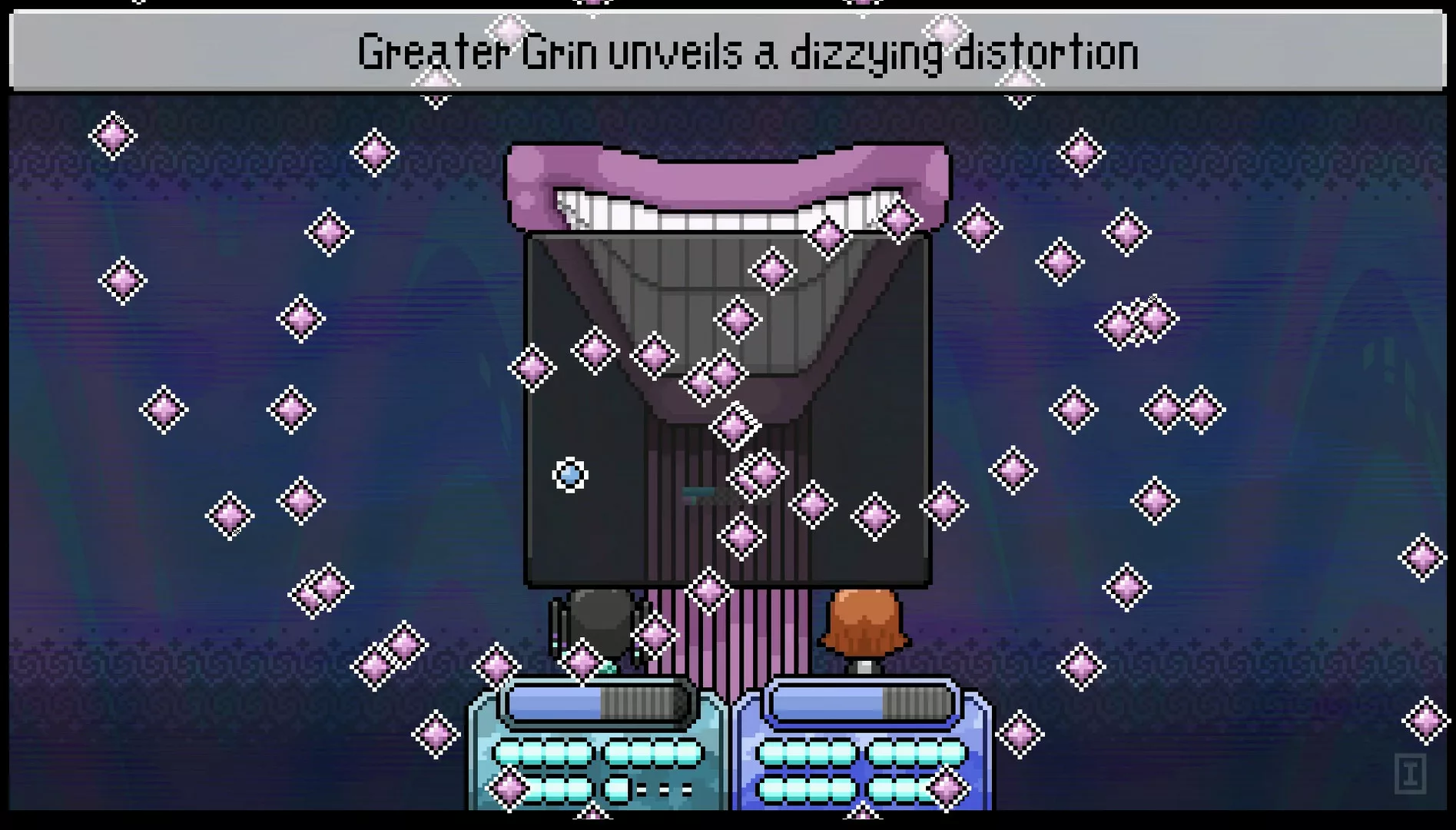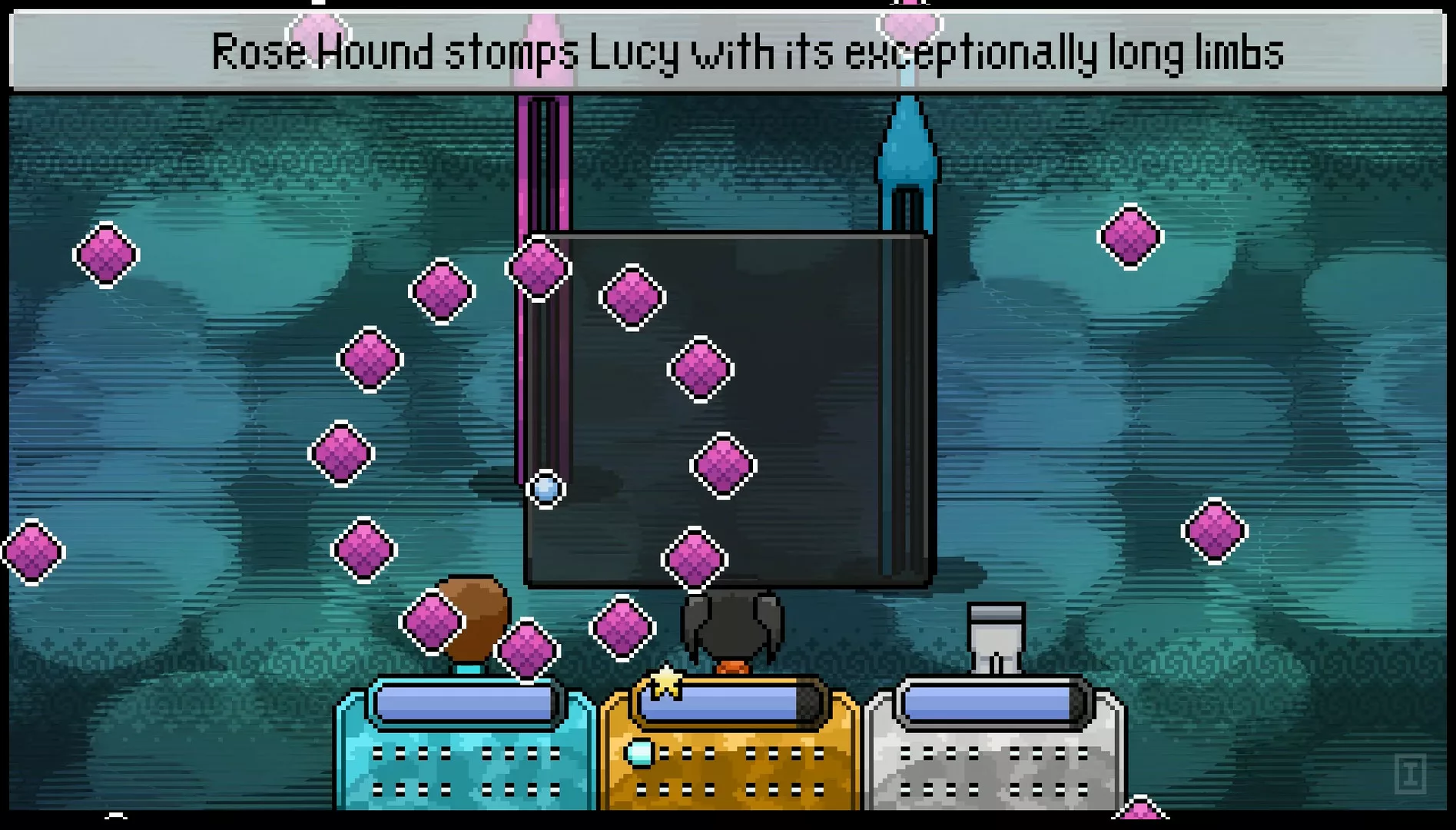Imagine waking up one day in a strange new land, with no memories of how you got there. The world around you seems full of mystery, just waiting to be explored. That alluring sense of discovery is what draws you into Atlas Wept, an experimental RPG that blends turn-based combat with intense bullet hell action.
On paper, Atlas Wept sounds like an absolute blast. Its premise of following two separate groups of kids on a whimsical adventure is intriguing and refreshingly upbeat. Add in an innovative battle system requiring equal parts strategy and quick reflexes, and you’ve got the recipe for a standout indie hit.
In practice though, Atlas Wept never fully delivers on its lofty ambitions. For all its daring ideas, it trips over some critical flaws that drain away a lot of the joy. Sluggish pacing, repetitive combat, and an aimless story leave you wishing this new world had been crafted with more care. Like an unstable portal, Atlas Wept tantalizes you with possibilities before dumping you into a disjointed experience.
That’s not to say there aren’t some bright spots. When the stars align, Atlas Wept transports you back to the golden age of 2D RPGs. Yet for each memorable moment, there’s an off-key design choice or technical issue threatening to break the illusion. Ultimately, while Atlas Wept reaches for the heavens, it’s weighed down by the gravity of its own missteps.
An Adventure That Loses Its Way
Atlas Wept splits its narrative focus between two parties of explorers, each following their own winding path through a strange new world. There’s Hal and Lucy, searching underground caverns for clues about their robotic companion, Gigi. And up on the surface, Desi and Charlie investigate why people seem to be losing their memories. At first, it’s unclear how these tales connect, if at all. But as layers peel back, you hope the payoff will make it all worth the confusion.
Unfortunately, Atlas Wept’s ambitious dual narrative structure proves to be a double-edged sword. Jumping between the two perpetually perplexed groups starts off intriguing, almost like a mystery you’re piecing together. But without enough upfront exposition, their goals feel worryingly vague. Why are they so driven to uncover these secrets? And how do rusted machines or magical stones connect to the bigger picture? Atlas Wept keeps its cards close to the chest, creating gaps in understanding that are never quite filled.
Making matters worse, progression often relies on objectives seemingly unrelated to the end goal. For Hal and Lucy, reassembling a giant statue, while occasionally rewarding, does little to recover Gigi’s memories. These tangents don’t strengthen relationships or reveal hidden truths. Instead, they feel like time-wasting distractions that undermine the urgency of their quest.
In its attempts to build a sense of wonder, Atlas Wept forgets that compelling adventures also need emotional anchors. When characters lack clear motivations beyond curiosity, it becomes difficult to invest in the outcome.
That’s not to say intrigue is lacking entirely. Around the halfway point, Atlas Wept dots its landscape with cryptic clues about the planet’s history. Old facilities house records hinting at experiments to control human negativity. Strange shrines speak of a dark force lurking beneath the cheerful façade. Despite stretches of aimless wandering, occasional breadcrumbs like these provide motivation to press on, hoping to witness the tangled threads finally weave together.
But when the ending does arrive, it fails to deliver an insightful message or satisfying character resolution. After slowly meandering to the finish line, events unfold too rapidly to feel fully earned. For all its build-up, Atlas Wept’s payoff lands with a resounding thud.
Beyond narrative shortcomings, the world itself harbors untapped potential. Backdrops contain imaginative architecture, from sprawling ancient ruins to neon-bathed cityscapes. Each new environment overflows with artistic flair. Yet when it comes time to explore, many areas feel hollow. Shops contain identical supplies, houses are devoid of life, and optional side paths serve no purpose beyond basic loot drops. The vibrant packaging promises depth and secrets that never fully materialize.
It’s a shame the world lacks attention to detail and interactivity to match its visual splendor. Many locations seem to exist solely for the sake of having another environment, not because they enhance the journey or reveal intimate insights about characters. Like an intricately decorated set without a compelling play, the world provides a striking backdrop but lacks substance in the foreground.
For all its flaws, Atlas Wept succeeds at instilling a sense of discovery, even when the payoff underwhelms. If the story aligned better with its lofty goals, this could have been a world worth fighting for. As is, exploring its alien landscape offers some fleeting thrills, but few lasting rewards. The bones of a great adventure are here – if only the pieces fit together more seamlessly. With a bit more polish, Atlas Wept could go from a wandering daydream to an unforgettable journey.
Fighting That Overstays Its Welcome
On the surface, Atlas Wept’s combat shows tremendous promise. Blending traditional turn-based mechanics with bullet hell dodging is an inventive twist. When it clicks, battles demand equal parts strategic planning and twitch reflexes. But as the initial novelty fades, the system reveals itself as an exercise in frustration, far too drawn out for its own good.
First, the positives. Atlas Wept eases you into its varied combat with beginner-friendly design. Early on, the game provides ample support to get your bearings. Save points and healing stations are generously scattered about, letting you recover and save your progress frequently. The adjustable difficulty ensures you can find the right challenge level, preventing punishing spikes in enemy strength. Helpful documents offer guidance on effective tactics and skill combinations so you can optimize your strategy.
The thoughtful onboarding makes diving into the unconventional battle system feel exciting rather than intimidating. Your party takes turns unleashing attacks, buffs, and debuffs, similar to classics like Final Fantasy. But when defending, action shifts to frantic bullet hell sequences where you guide characters as they dodge incoming volleys. It’s a thrilling fusion that keeps you engaged turn after turn.
New mechanics layer on as you progress. Spells and special attacks require precise timing for maximum impact. Managing statuses and turn order becomes critical. A stun meter punishes sloppiness, demanding you balance offense and defense judiciously. Just when you’ve settled into a groove, Atlas Wept ups the ante to prevent tedium.
So with all this depth and variety, where does it go wrong? The answer lies in pacing. In the early hours, you barely notice the slow speed; there is too much to learn. But 15 hours in, needlessly long encounters begin to drain the fun out of fighting. After mastering the systems, there is little challenge or satisfaction left – just an endless slog.
The dragging tempo stems from the bullet hell mechanics. While thrilling at first, the mini-games increasingly feel like jumping through hoops. There are no options to skip enemy turns or simplify the evasion sequences. Every foe, even lowly minions, will force you into a tedious back-and-forth. With no room for nuance, combat becomes repetitive number crunching punctuated by reflex challenges growing stale from overuse.
The lack of enemy variety exacerbates the issue. Atlus Wept leans too heavily on a shallow pool of enemy types, amplifying the repetitiveness as you fight carbon copies over and over. Visually stunning bosses provide occasional highlights, though multi-phase battles bloat the runtime even more. But in general, fighting loses its luster well before the credits roll.
Without respawning enemies or avoidable encounters, you’re funnelled into fighting nearly every battle, padding the game length. Despite the array of difficulty options, Atlas Wept needs rebalanced enemies and streamlined combat to reach its full potential. Once the initially novel combat wears thin, all that remains is a sluggish churn. For a game built on forward momentum, Atlas Wept spends far too much time standing still and going through the motions.
A Troubling Dissonance Between Sights and Sounds
Atlas Wept’s retro pixel art style oozes nostalgic charm, evoking fond memories of classic 2D RPGs. Vibrant colors and varied environments visualize an alien world brimming with magic and mystique. From sun-dappled forests to steampunk-inspired ruins, each locale has a distinct aesthetic that brings its essence to life. Coupled with crisp animations and dazzling effects, Atlas Wept is a visual treat for the eyes.
If only the same polish extended to the audio presentation. While the graphics aim to delight, the soundtrack and sound design often miss the mark. Throughout most of the journey, the music maintains a dreary, ominous tone. Melancholic piano and unsettling ambiance set an atmosphere of foreboding regardless of context. Somber tracks accompany lighthearted scenes, undercutting their emotional impact. With little variance, the persistent gloom becomes numbing.
Worse still, technical issues plague the audio mixing. Many sound effects seem detached from the in-game options, blaring loudly even at reduced volumes. During hectic combat, stacking sounds quickly escalate into cacophonous chaos, reaching ear-splitting extremes that risk sensory overload. The distortion ruins any chance of immersion, leaving your ears begging for reprieve.
Such glaring audio flaws serve as an unfortunate distraction. In pursuing a dark aesthetic, Atlas Wept goes overboard in smothering the experience under a blanket of gloom. While fitting at times, the lopsided tone exposes a lack of nuance. After hours immersed within the dreary soundscape, you yearn for even faint rays of light through the darkness.
Much like the narrative itself, the absence of contrast leaves the world feeling emotionally muted. Somber visuals and music can effectively accentuate poignant moments when used judiciously. Yet Atlas Wept bathes nearly every scene in melancholy, squandering opportunities to accentuate poignancy. Suffocated by its own bleakness, any glimmers of hope or warmth are tragically fleeting.
With some recalibration of its uneven audio mix, Atlas Wept could strike a more compelling tonal balance. As is, the dissonance between its cheerful visuals and gloomy sounds rings hollow. Muted highs and deafening lows drown out the melody hiding underneath.
An Adventure Best Left in the Past
Given its significant shortcomings, Atlas Wept unfortunately lacks the replayability or lasting power to make it a recommendation worthy of revisiting. Once the credits roll on its 15-hour campaign, there is little incentive to dive back in for a second playthrough.
The confusing, unsatisfying story denies an impulse for repeat visits. Without ever realizing its ambitions, the narrative ends abruptly after meandering aimlessly. Lingering questions are left unanswered, characterization feels superficial, and dramatic plot points land flat. After a single perplexing playthrough, the motivation to experience that disjointed tale again is slim.
Likewise, the inventive combat ceases being novel after extended exposure. The initial thrill of dodging colorful bullet patterns gives way to exhaustion from repetitive enveloping encounters. With progression based on combat, replaying the game means further draining the little enjoyment left in its bloated, drawn-out battles.
And beyond combat, side content is sparse. Exploration reveals little beyond cosmetic collectibles that provide temporary boosts. Shops remain static, NPC interactions are limited, and side quests are nearly non-existent. Once every corner is uncovered, curiosity yields to boredom. A sense of wonder is fleeting when superficial distractions are the only rewards.
For a modern RPG, Atlas Wept is strangely devoid of reasons to stay engaged after the credits. Rather than nurturing a desire to uncover hidden secrets or try new gameplay routes, it instills relief at having completed the arduous journey once. Only the most patient and curious will have appetite for a second helping.
In the end, Atlas Wept’s best moments are confined to its opening acts, before flaws crystallize through repetition. Chasing the fleeting nostalgia of those early hours ultimately leads to diminished returns. Like a childhood memory, recalling the magic is often more rewarding than trying to re-experience it directly. For most, Atlas Wept is better left fondly in the past rather than revisited in the present.
A Flawed But Ambitious Journey
For all its stumbles, Atlas Wept deserves some credit for daring to innovate within an increasingly stale genre. Blending bullet hell combat into a turn-based RPG framework is an inventive risk that pays off in flashes. When the stars align, Atlas Wept transports you back to the golden era of 2D RPG explorers through rose-tinted glasses.
Certain elements, like the beginner-friendly onboarding and charming pixel art style, provide glimmers of magic amidst the flaws. And while the story falters, the overarching world exudes plenty of mystery and intrigue to fuel wanderlust. Atlas Wept clearly set its sights high, even if it trips over its own ambitions.
But it’s impossible to disregard the significant issues dragging down the overall experience. From a plodding combat system to an aimless narrative, Atlas Wept loses momentum as its glaring weaknesses crystallize. Though initially captivating, the repetitive battles and disjointed storytelling soon descent into tedium.
For a modern RPG release, especially one focused on discovery, the lack of meaningful side content or customization options is also disappointing. Once the paper-thin distractions are stripped away, an emotional hollowness lingers where immersive adventure should thrive.
Could future patches resolve some of these pitfalls? Potentially, with aggressive tuning to enhance variety and reduce padding. But certain narrative flaws run too deep to easily fix. In its current form, Atlas Wept sputters out well before reaching its destination.
For diehard fans of experimental indies, Atlas Wept may still warrant experiencing its highs and lows firsthand. But most players are better off looking to more polished titles that build successfully upon retro RPG foundations. While admirable in its unconventional approach, Atlas Wept requires extensive refinement before it can fulfill its lofty ambitions.
Its heart is in the right place, but the execution rings hollow. Like an overeager traveler attempting to bite off more than they can chew, Atlas Wept ultimately crumbles under the weight of its own audacious vision. For now, this is one adventure better left untaken, awaiting the day when its disparate pieces can fuse into a cohesive whole. The promise is there, but the fulfillment is not.
The Review
Atlas Wept
Despite flashes of innovation, Atlas Wept collapses under the weight of its unfulfilled ambitions. For all its daring ideas, critical missteps in pacing, variety, and storytelling drain the magic faster than it can be conjured. An experimental misfire that lacks the polish or depth to recommend beyond hardened genre fans.
PROS
- Innovative blend of turn-based and bullet hell combat
- Accessible difficulty options and beginner-friendly onboarding
- Engaging pixel art visual style and mysterious world
- Occasional story reveals provide intrigue
CONS
- Repetitive, overlong combat drags down pacing
- Narrative lacks direction and satisfying payoff
- Explorable areas feel empty and devoid of life
- Technical issues like audio balancing and mixing
- Lack of worthwhile side content or customization
